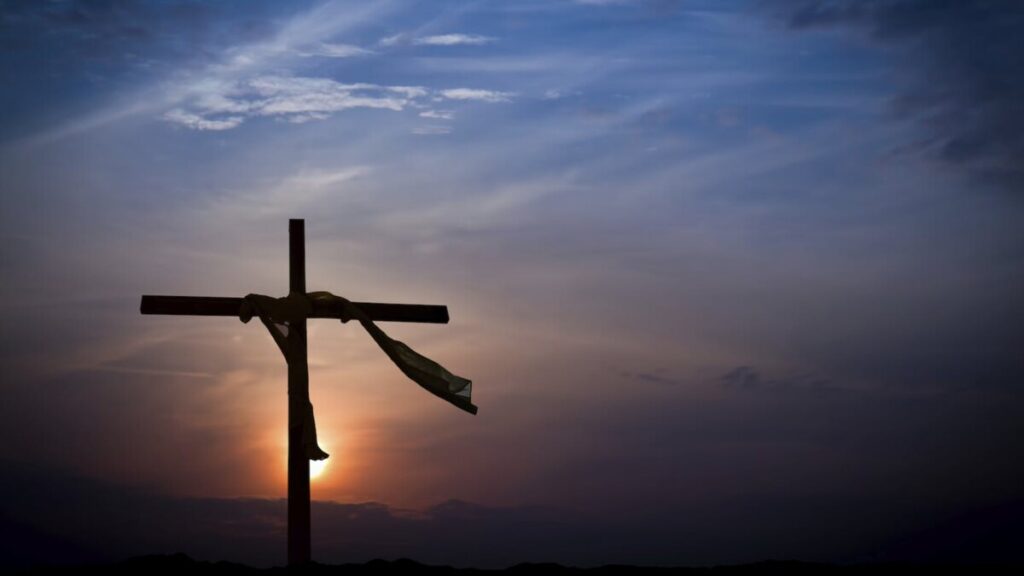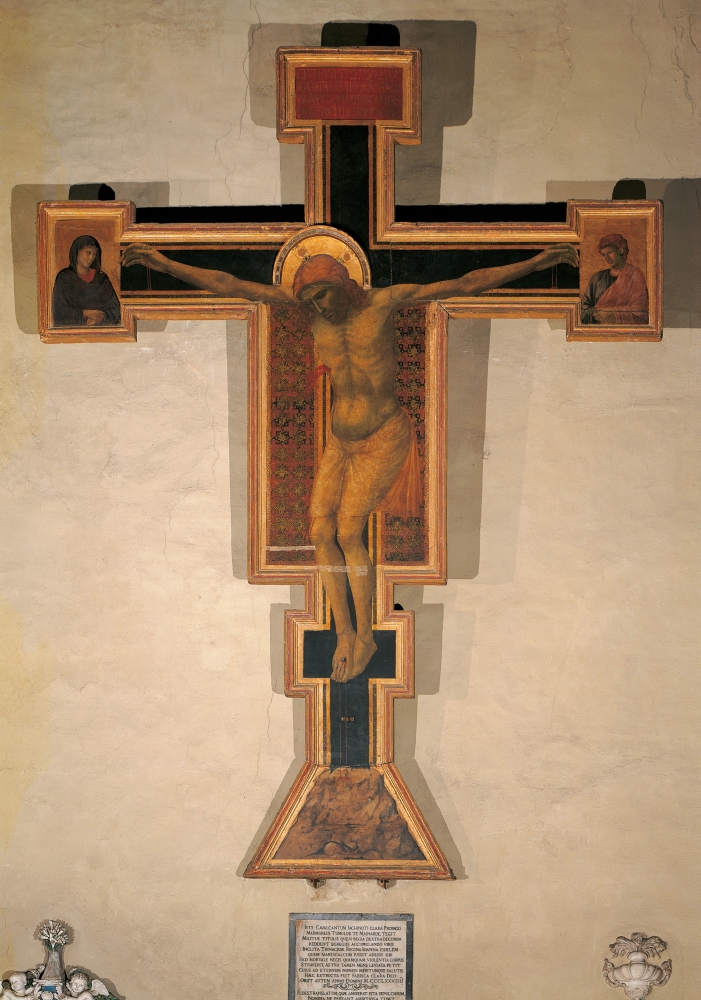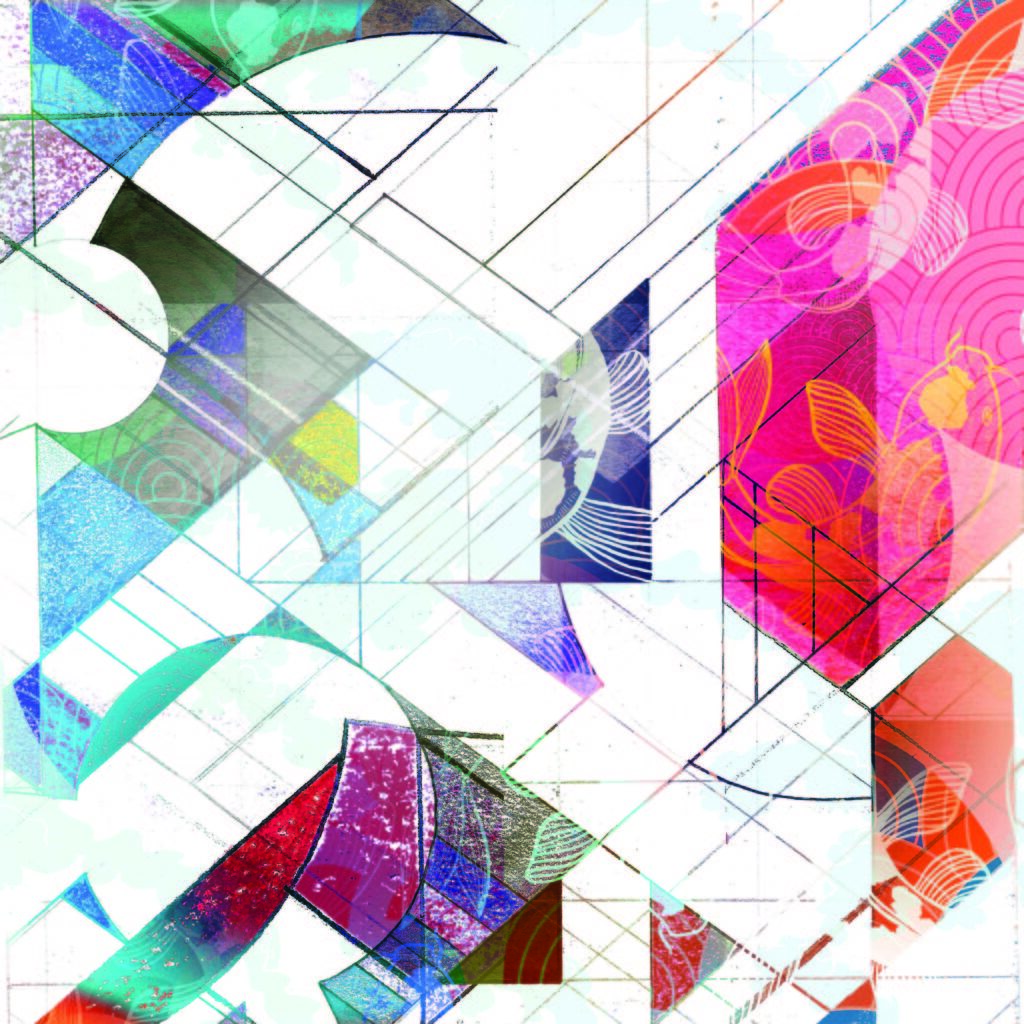By Krista Jenkins
As inspired by many of the conversations in our Spirituality class, this year I found myself spending Eastertide at a silent retreat, in wonderfully protected space for reflection and contemplation. And I found myself reflecting on ghosts of Easters past.
I remember the first time the Easter season felt different for me. It was about five years ago during Holy Week when I realized I felt…nothing.

Oh no, I thought, this couldn’t be a good sign. Christians aren’t supposed to feel nothing during Holy Week.
But, alas, here I was. And on that Good Friday, when I felt nothing, I knew everything I previously believed was changing. I was, as they say, deconstructing.
I grew up having internalized the message that God—this being somehow higher in the sky than the stars I viewed through my telescope, and closer than my insides and untold secrets—had seen people as so bad, so sinful, that he sent his son to die. And this would save humanity.

I believed that somehow, in some way, all of everything that made me me was so irreparable that it literally caused the murder of an innocent man thousands of years ago. It was my fault; how could I have done such a thing?
But wait, somehow this was good news! I could be made good if I only believed the right thing, or tried hard enough, or a balance of the two, and then I would be finally saved from my badness.
Yet, somehow, I never could feel good enough. Because I knew I was a sinner to my core, and I couldn’t escape it.
For a long time, this was the holy week message for me, the Christian message. At the last supper on Thursday, I was Judas, letting my feet be washed and knowing in some way I was bound to betray Jesus. On Good Friday, where the hell was goodness amidst my badness that led to the murder of Christ? And then came Saturday, the day before Sunday, the waiting for redemption and a semblance of hope. How I yearned to someday feel the hope that Easter was rumored to bring.

But I never found it within the walls of the church; I found it when I found the divinity within myself.
Everyone in our class carries different backgrounds and beliefs, but I have heard similar stories to my own. In class discussions on Christian interactions with things like mental illnesses, addictions, sex and sexuality, or adverse childhood experiences, so many have found wolves in sheep clothing when they sought the lamb of God. Spirituality and brain sciences teach us that how we believe and interact with God deeply impacts how we see ourselves.
The god that I inherited so early on in my life, the one that was forced to murder the innocent because of my sin, caused such deep internalized shame and instilled fear that my brain still sends messages that I am never enough, that I am not worthy. While some of this experience is ingrained in the human psyche, why should it also be ingrained in a message that claims to be good news?

Because of our stories like those shared in class, all those years ago on Good Friday, I found myself fully embracing the process of deconstruction.
I knew that I could no longer believe in the idea of a god who viewed me so poorly. Who viewed everything I did or didn’t do with such contempt. Who was an angry judgmental man, always watching me like an omniscient, omnipotent Santa Claus.
I couldn’t believe in a god who held me personally accountable for the death of an innocent savior, because in many ways, this belief was killing me as well, from the inside out.
So, I let go and floated into the unknown. I risked and even embraced the notion of coming out on the other side not believing in anything at all. In many ways it was my own Good Friday, committing my spirit into the hands of something outside of myself.
Whenever I get to this part in sharing my story, inevitably Christians ask, but you believe in Jesus now, right? You call yourself a Christian? And so often my response is, who do you say I am? Too often we skip ahead and miss what awaits us in the unknown, in the dharma in suffering.
This class has allowed me to process the ways in which Christians focus so intently on principles that we forget our people; we create ethics that ignore experiences. I have learned that spirituality, and even Christian spirituality, can be so much bigger.

That god is within me, within each one of us, and within the universe.
If any of us has assumed a relationship with a god that perpetuates powerlessness and punishment, a relationship that makes us believe we were never nor will ever be good enough, this is not love; this is abuse.
May we call out these voices that call themselves god but instill shame, that ingrain self-hatred and praise it as holy martyrdom.
Shame is not the burden of the cross, and inherent unworthiness is not dying to self.
On our Good Fridays, may we put to death our inner voices of shame and fear and say over the voices who have held this over us (intentionally or unintentionally), forgive them; they know not what they do.

What a beautiful writing! Thank you for sharing! I am sure that your words will make a difference for others who were/are deconstructing and becoming.